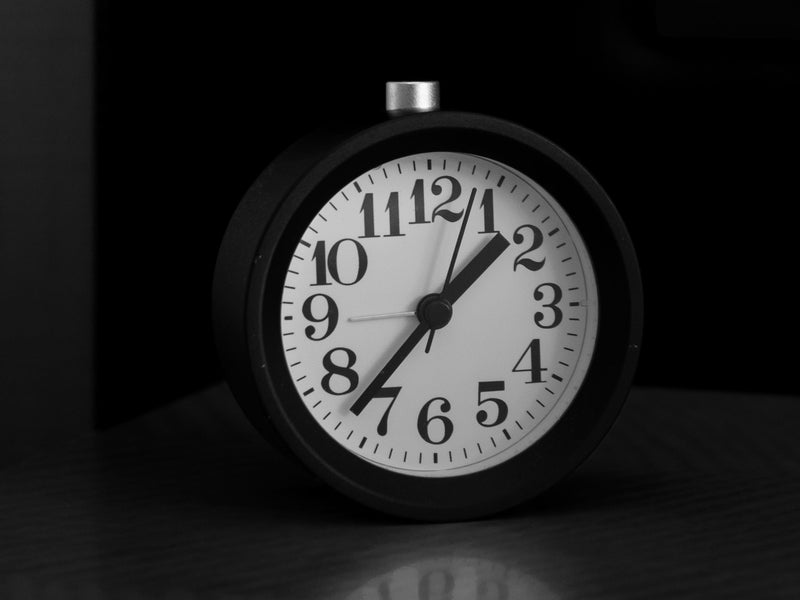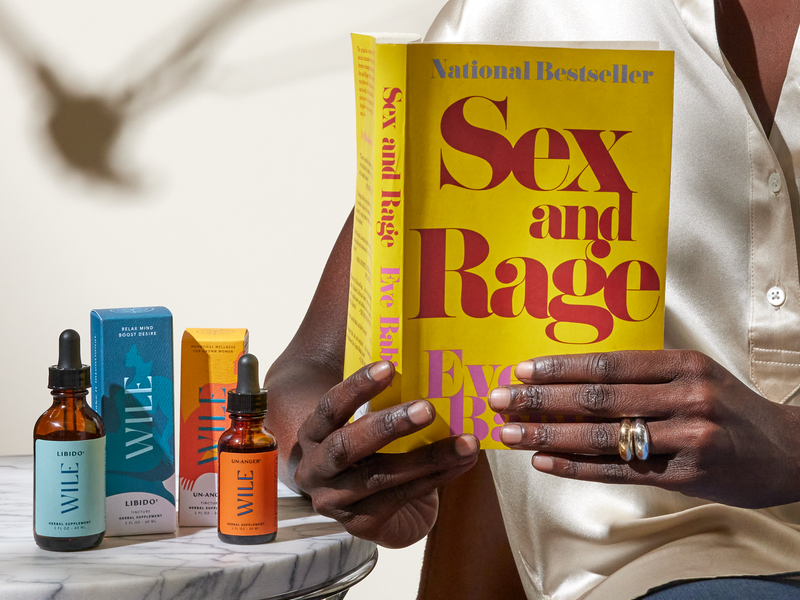The Ancient Solution to a Happier, Healthier Brain
Some ingredients work so well, we wonder why they ever lost their place in the pharmacopeia. Brahmi (also called bacopa) is one of those herbs. With recorded use for brain health and mental well-being going back at least to the 6th century and Ayurveda backing it up, it’s no wonder that brahmi is a naturopath’s favorite for increasing brain function, easing stress and banishing burnout.
Why We Love Brahmi
- We love herbs with more than one benefit. It’s that holistic thing. Brahmi’s abilities to enhance both mood and brain function make it a perfect ingredient to support women facing both emotional and intellectual demands, which is every woman we know. Thanks, society.
- Brahmi is an adaptogen, which means that it works with your adrenal system to balance stress hormones. Adaptogens are great for promoting an energized sense of calm.
Key Benefits:
Boosts Cognition & Memory - Brahmi contains potent nootropic compounds called bacosides that enhance brain function. You know how that first cup of coffee snaps you into clarity each morning? That’s because caffeine is also a nootropic. Unlike caffeine, whose effects are almost immediately recognizable, brahmi’s nootropic effects increase over time. If you don’t immediately detect a difference, don’t give up! Some studies have found that brahmi’s optimal benefits kick in at approximately 12 weeks of use. We love brahmi as a burnout treatment because it can help you maintain focus, even when you’re overworked. Check out our Burnout Relief tincture to try it for yourself!
Women’s Stress Relief - Brahmi is a popular anti-stress herb. Promising research indicates that the bacosides in brahmi can even be effective in easing occasional anxiety and its accompanying symptoms. We love it in our Un-Worry women’s stress supplement.
Boosts Mood - Clinical research is turning up more and more evidence that brahmi can reduce feelings of occasional depression or sadness, especially when the slump comes after experiencing a lot of stress. You know that mood crash after a big project or emotionally charged event? By increasing stress resilience, mood supplements with brahmi can relieve those effects.
May protect against future memory loss - This is the life stage where many of us start to confront Alzheimer’s, dementia and Parkinson’s disease in our older loved ones. You may be seeing small declines: repetitive stories, forgotten this or that, less confidence doing daily tasks. These wakeup calls get many of us into prevention now. Brahmi is incredibly rich in antioxidants, which help protect the brain from something called lipid peroxidation. Avoiding lipid peroxidation is a great way to protect against future cognitive issues.
Traditional Uses:
Brahmi has a rich history of medicinal use through Ayurvedic tradition. As early as the 6th century, an Indian text called the Charaka Samhita mentions brahmi as a remedy for occasional anxiety, lack of concentration, and poor cognition.
It has also been used in Ayurveda as a memory tonic, and Vedic scholars traditionally consumed brahmi to help them memorize long hymns and texts.
About the Plant:
Brahmi is a small plant with round or heart-shaped green leaves and five-petaled flowers. It is native to the wetlands of southern India, but it grows in warm wetlands all over the world. Brahmi is also known as bacopa, water hyssop, thyme-leaved gratiola, Indian pennywort, and herb of grace.
Found In (Wile Products)
Things to Know about Brahmi:
Brahmi is considered very safe for most people to use, but it may interact with some medications. Talk with your doctor if you have a heart condition or take heart or liver medication.
Clinical Research
- Banerjee, Samarpita, Uttpal Anand, Suchhanda Ghosh, Durga Ray, Puja Ray, Samapika Nandy, Ganpat Dewaji Deshmukh, Vijay Tripathi, and Abhijit Dey. “Bacosides from Bacopa Monnieri Extract: An Overview of the Effects on Neurological Disorders.” Phytotherapy Research 35, no. 10 (July 12, 2021): 5668–79. https://doi.org/10.1002/ptr.7203.
- Calabrese, Carlo, William K. Gregory, Michael C. Leo, Dale F. Kraemer, Kerry Bone, and Barry Oken. “Effects of a Standardized Bacopa Monnieri Extract on Cognitive Performance, Anxiety, and Depression in the Elderly: A Randomized, Double-Blind, Placebo-Controlled Trial.” Journal of Alternative and Complementary Medicine 14, no. 6 (August 6, 2008): 707–13. https://doi.org/10.1089/acm.2008.0018.
- Dubey, Tushar, and Subashchandrabose Chinnathambi. “Brahmi (Bacopa Monnieri): An Ayurvedic Herb against the Alzheimer’s Disease.” Archives of Biochemistry and Biophysics 676 (November 15, 2019): 108153. https://doi.org/10.1016/j.abb.2019.108153.
- Jorm, Anthony F., Bryan Rodgers, and Helen Christensen. “Use of Medications to Enhance Memory in a Large Community Sample of 60–64 Year Olds.” International Psychogeriatrics 16, no. 2 (June 1, 2004): 209–17. https://doi.org/10.1017/s1041610204000298.
- Kadali, Ramana Murty, Das MC, Srinivasa Rao A.S.R., and Karuna Sri G. “Antidepressant Activity of Brahmi in Albino Mice - PMC.” Journal of Clinical and Diagnostic Research 8, no. 3 (March 2014): 35–37. https://doi.org/10.7860/JCDR/2014/7482.4098.
- S, Chopra V, Sharma R, Khajuria, Sawhney, and Kapoor. “The Psychomotor Effects Of Brahmi And Caffeine On Healthy Male Volunteers.” Journal of Clinical and Diagnostic Research, January 1, 2009.
- Sekhar, Vini C., Gayathri Viswanathan, and Sabulal Baby. “Insights into the Molecular Aspects of Neuroprotective Bacoside A and Bacopaside I - PMC.” Current Neuropharmacology 17, no. 5 (May 2019): 438–46. https://doi.org/10.2174/1570159X16666180419123022.
- Stough, Con, Jenny Lloyd, James Clarke, Luke A. Downey, Christopher J. Hutchison, Thomas Rodgers, and Pradeep J. Nathan. “The Chronic Effects of an Extract of Bacopa Monniera (Brahmi) on Cognitive Function in Healthy Human Subjects.” Psychopharmacology 156, no. 4 (August 1, 2001): 481–84. https://doi.org/10.1007/s002130100815.
- Sultana, Rukhsana, Marzia Perluigi, and D. Allan Butterfield. “Lipid Peroxidation Triggers Neurodegeneration: A Redox Proteomics View into the Alzheimer Disease Brain.” Free Radical Biology and Medicine 62 (September 1, 2013): 157–69. https://doi.org/10.1016/j.freeradbiomed.2012.09.027.
Sources
- “BACOPA: Overview, Uses, Side Effects, Precautions, Interactions, Dosing and Reviews,” n.d. https://www.webmd.com/vitamins/ai/ingredientmono-761/bacopa.
- Clt, Erica Julson Ms, Rdn,. “The 14 Best Nootropics and Smart Drugs Reviewed.” Healthline, January 26, 2022. https://www.healthline.com/nutrition/nootropics.
- Mohan, Harish. “From Brahmi and Ashwagandha: Herbs That Kill Stress, Improve Memory.” www.business-standard.com, November 10, 2018. https://www.business-standard.com/article/health/from-brahmi-and-ashwagandha-herbs-that-kill-stress-improve-memory-118111000835_1.html.
- Rd, Ryan Raman Ms. “7 Emerging Benefits of Bacopa Monnieri (Brahmi).” Healthline, November 1, 2019. https://www.healthline.com/nutrition/bacopa-monnieri-benefits.
This article is intended for informational purposes and is not intended to replace a one-on-one medical consultation with a professional. Wile, Inc researches and shares information and advice from our own research and advisors. We encourage every woman to research, ask questions and speak to a trusted health care professional to make her own best decisions.




